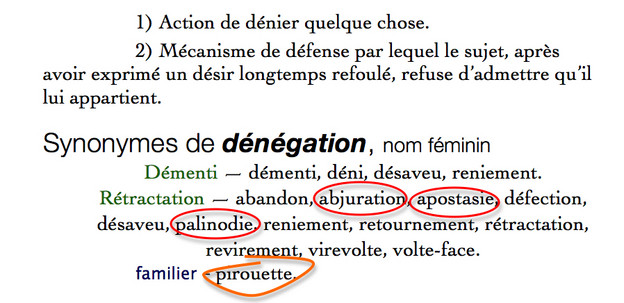Cómo no traducir? HOW, negation, TO TRANSLATE?

Como no traducir? How not to/to not translate? I received Andrés Ajens’ curious pirouetting question, which does not settle in English, by email a couple of months ago, announcing an August colloquium in Santiago de Chile. His further question set me wondering. “In this phrase, against our usual transitive interpretation of the verb “to translate,” might there be an inevitable figure of the return, reversal or tumble?” “What if translation,” asked Ajens, “were only “in part”, in part translation and “in part”, something else?
Here I quickly translate Ajens’ ruminatory introduction to an invitation to write, as I am writing. How to translate by not translating? How to translate the invitation to not translate? Its how? How to translate, in not translating? How to refuse translation’s disavowal, in translating? Echoes of the question, in English, are both negative and positive, inseparable.
How to cross that boundary between idioms, gripping a satchel of words? How to live, finally, in the “no traducir”, in the “ne pas traducir”, live with translation’s mise en abyme which is one with its possibility? In order to leave (bereave) possibility open?
Ajens’ question—which I will answer for my part in August in Santiago de Chile by talking of translating the guaraní-inflected portunhol of Wilson Bueno—takes its form from a question-instruction that marks a talk by Jacques Derrida. That talk is “Comment ne pas parler,” given in Jerusalem in 1986 in English (and Jerusalem itself is not without consequence here), which appeared in print in Psyche : Inventions de l’autre (1998 and 2003 in French, 2007 and 2008 in English translation (this particular essay) by Ken Frieden and Elizabeth Rottenberg).
In English, the thought that Derrida announces, and that Ajens leap-echoes, is stoppled. Not stopped but stoppled. Derrida’s question or quest (so necessary to Ajens’) is Comment-ne-pas-parler, and its structure is that of HOW, negation, TO SPEAK. In the standard English, however, the question is rendered as “How to Avoid Speaking?[1]
Do you see the nub of difficulty here? The stopple? In the English title, there is the idea of avoidance that is not in the French—though it does occur in the essay's text as co-question among other, as "Comment ne rien dire?/How to avoid speaking?". But it is not the title question in French. There is such a void in that avoidance: the English rendering of the title avoids issues that the French, in its sinews as language, grapples mightily to raise!
It would be better perhaps to say, but to say aloud and not write it: How to disavow speaking? Here the “ow” (or “ouch”) in How echoes in the new, trespassing disavow. The new word would also have the advantage of containing a negative particle, the dis.
Which leads me further! For the full title of Derrida’s essay contains one more word than the question which Ajens offered me in Spanish. Derrida’s full title is “Comment ne pas parler : Dénégations”. In English, that last word is translated as “Denials”, an accurate translation, yet one that loses the double sense in the French word, of not just negating (action de dénier quelque chose) but of de-negating. Not un-negating, and this is important: not removing a negation. But de-negating it. (The de- in French is the dis-, in English, which is not an un-.) Negating, then retracting the negation. A denegation proposes and retracts in the same move. It refuses, in effect, by naming.
This, to me, has something vital to do with translation, and the ability of a translator (a human consciousness) to carry and lose meaning, and culture, simultaneously. The very name, inscribed by the translator in a new language, refuses something in that new language. Refuses to be given over into it.
The English rendering of the Derrida title, “How to Avoid Speaking: Denials” certainly avoids inscribing a lot of things. It would have been better, perhaps, to title the essay: “How not to/to not Speak: Denegations”. In French, the title both offers and withdraws; it works through a rhetorical claim that is not only a mise en scène but a mise en abyme. The English denies us this working.
The word “dénégation,” as well, points to Althusser, and from Althusser to Freud, who uses the German word verneinung, translated into French mostly as "dénégation" since "negation," its literal translation, doesn't quite do it. (Others, such as Mark C. Taylor, have already put their finger on the difficulties of translating "verneinung.") In Althusser, "negation (denegation)" is applied to a process that locates us always in ideology; in Freud, "dénégation" locates a mirror recognition-mechanism in language, paradoxical, as its very enunciation intends its opposite. More a revocation, a "dénégation" is something stated and then denied in one move.
A lot of useful reasoning in our world uses forms of denegation. Even Derrida’s essay shows how various of these devices work, for he enacts them; they appear as a hesitancy and shying away, a move forward and sideways.
Like translation, in a way. Forward, yet sideways. Enunciating that which it cannot possibly contain, and must, at the same moment, renounce, in order for its utterance to be heard. Enunciating, disannouncing, rencouncing... what? The ghost signature of the original.
I leave you with this ghost. To work onward in silence. Like Peter Rabbit, I now tumble under the fence with one eye on a carrot, leaving my Jacket snagged on the rail. For this is my last post, or pirouette, here, on translation.
signed, Erín
[1] The translation of Derrida’s Comment ne pas dire, given spontaneously during a telephone call from Jerusalem in response to a request for a title for his intervention there; he states that he thought of it in French, where the word "avoidance" does not appear.
T r a n s l a t i o n ' s__H o m e o p a t h i c__G e s t u r e s